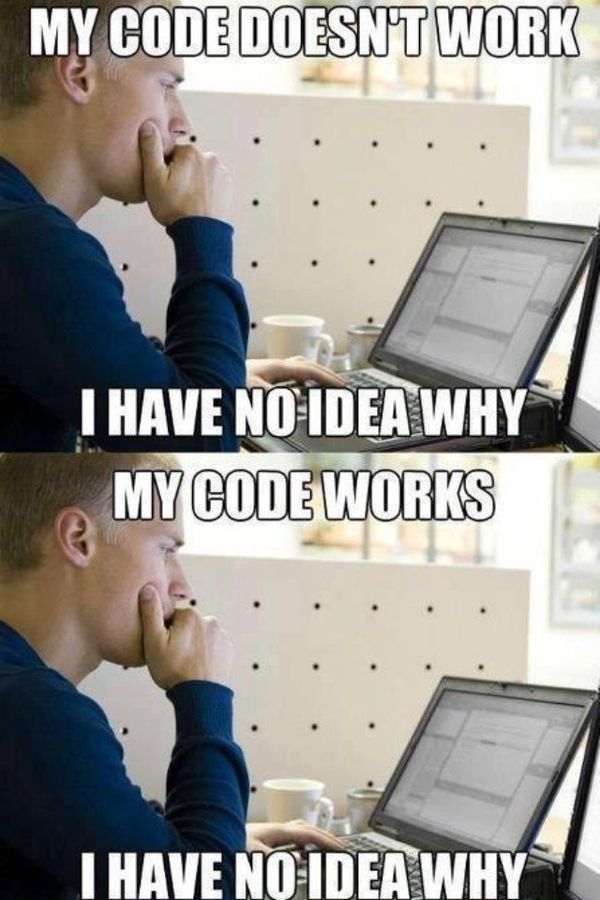skraeling
Scientist Extraordinaire
- Joined
- Sep 26, 2013
- Messages
- 721
- Reaction score
- 285
I think my head wants to explode. It's interesting it's fun I'm wondering how long I'll actually stick with trying to learn it though. I have a full time and a part time job already this is something I'm just poking my head into to see if maybe it's not worth a career change as I'm in my 30s now and making 20-30k less a year than friends around the same age.
I do have a 4 year hard science degree so it's more so a function of where I work and not what I work. Just kind of bored with what I do now.
Any software devs out there have any fantastic advice or things to not do as I dip my toes into this very deep pool?
I do have a 4 year hard science degree so it's more so a function of where I work and not what I work. Just kind of bored with what I do now.
Any software devs out there have any fantastic advice or things to not do as I dip my toes into this very deep pool?



